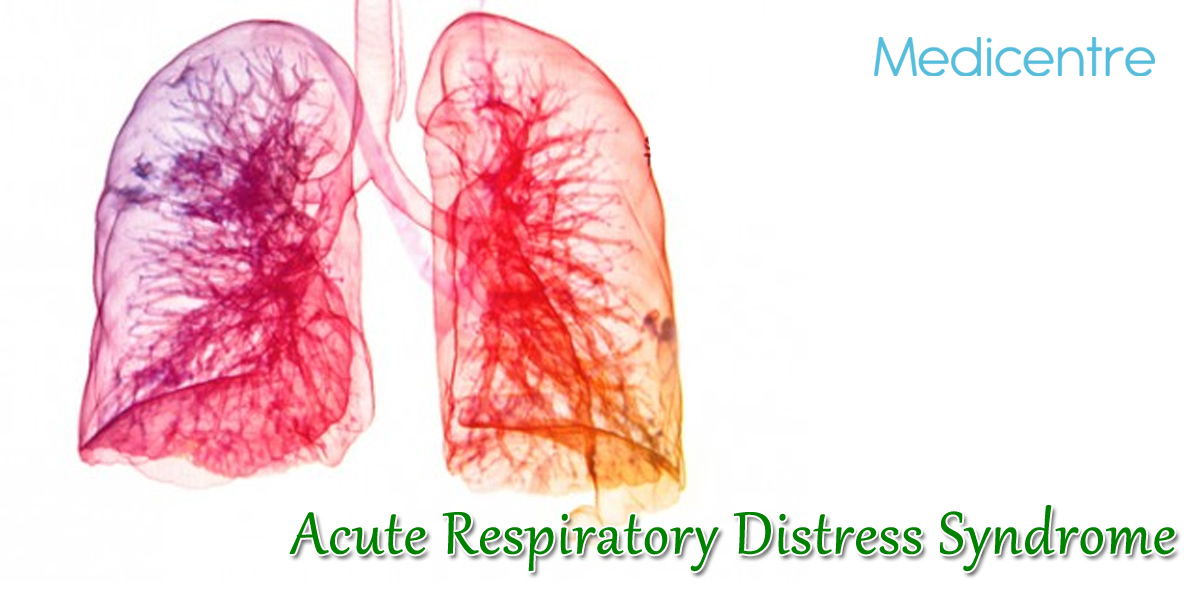Acute Respiratory Distress Syndrome (ARDS)
Diarrhea refers to frequent loose stools that are more than 3 loose stools in a day. It can be acute as well as chronic depending on the duration and the onset. Antibiotic-associated diarrhea is caused by one or more broad-spectrum antibiotics includes ampicillin, clindamycin, and cephalosporins by disturbing the symbiosis of organisms in the intestine.

It is a type of respiratory failure where the partial pressure of oxygen to the ratio of the fraction of inspired oxygen is less than 300mmHg. It causes inflammation in the lungs due to fluid accumulation in the lungs. It causes partial collapse of the lungs and low levels of oxygen in the blood
CAUSES OF ARDS:
It has the following causes:
- Pneumonia
- Sepsis
- Multiple blood transfusion
- Pancreatitis
- Dyspnoea
The mechanism includes injury to the microscopic air sacs of the lungs, dysfunction of the surfactant cells and ultimately impairs blood clotting and impairs the ability of lungs to exchange oxygen and carbon dioxide.
SYMPTOMS OF ARDS:
- Difficulty and shortness of breath
- The low partial pressure of oxygen
- Increased rate
DIAGNOSIS OF ARDS:
- CT scan
- Chest X-ray
- Ultrasound
TREATMENT OF ARDS:
- MECHANICAL VENTILATION: is done in the ICU to maintain gas exchange which meets the body’s metabolic demand and to achieve tidal volume that is needed.
- POSITIVE END-EXPIRATORY PRESSURE: is done to improve oxygenation after mechanical ventilation.
- PRONE POSITIONING: lying face down in a prone position will help improve oxygen levels in the blood to increase the chances of survival.
- FLUID MANAGEMENT: like diuretics are given to help remove fluid from the body by increasing urination.
- MEDICATIONS: include sedatives to relieve to calm the patient and paralytics are given to prevent the patient from moving.